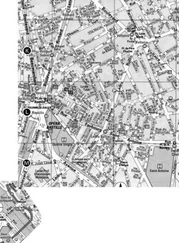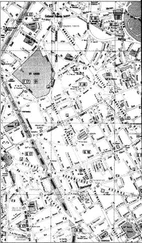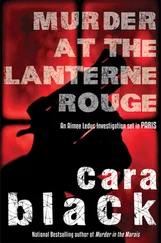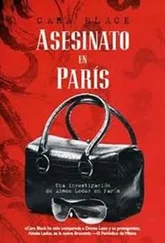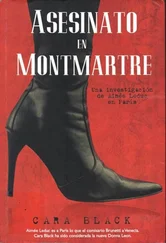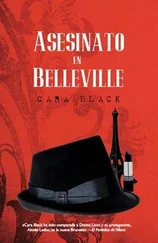His cell phone rang but he ignored it.
“Bon , give me a lead about my father’s death and I just might help you.”
“You need something more than that to bargain with,” he said.
“Like what?”
“I think you know.”
He answered his phone, turning away.
Still no sign of Mado, while her band Metallomix was tuning up on the stage. Pleyet clicked off, leaning forward on the counter.
“Why are you here, Pleyet?” she asked. “I don’t have the jade, and I already knew Regnier’s been suspended. Will you tell me about Thadée?” she asked, trying another angle.
“Thadée swam with sharks. Big, bad ones,” Pleyet said. “He was a spoiled little druggie from a titled family. Noblesse oblige tainted by bleeding-heart liberalism. Thadée promised things. Things I doubt he could deliver. And if that’s my conclusion, it was probably theirs.”
“Who’s ‘they’ and what did he promise them?”
“That’s what I’d like to know,” Pleyet said.
“But you have an idea. Blondel?”
Pleyet nodded and drank his beer as he watched people on the dance floor. The heat and perspiration from their bodies mingled with the tang of the fresh cut limes .
“Does blackmail feature in this?”
Pleyet studied her. “Why were you meeting Thadée?”
“To help a Vietnamese nun,” she said. “Why are you interested in a druggie?”
There, she’d told him the truth. But his hooded eyes gave away nothing. In front of them, the bartender mixed a coconut-milk scented cocktail with turquoise gin.
“Look, I had nothing to do with your father’s death,” he finally said again. “You should believe me.”
Why had the conversation veered from Thadée?
“Prove it.”
“I lost someone, too, in a dawn raid the next day. The whole asinine mission was based on hearsay, from an informer who wanted to save his neck. After the fiasco they reshuffled the whole department and buried the accounts in public works.”
Whether it was the way his voice shook for a nanosecond or the look of pain in his eyes, she believed him.
“Who did you lose?”
“My younger sister.”
“But how?
“She was cultural attaché at the consulate at Tripoli.”
“How does this connect to the surveillance Papa and I did?”
“Don’t you get it?” Pleyet said, his eyes narrow slits. “It didn’t. It was all fabricated. Lies . . . the mec made up a story. Got a bunch of our people killed, and himself blown up over the friendly skies of Libya. No one will admit that.” Pleyet leaned closer to her. She saw his thin lips quiver. “Ever. So don’t expect a belated apology. Or a detailed report. It’s all ashes in the wind.”
“They never even sent a wreath,” she said. “It took me one year, but I finally got his belongings.”
Pleyet averted his eyes. “Consider yourself lucky.”
Pause. She didn’t know what to say.
“How can you work for them, Pleyet?”
“I don’t.”
But she’d seen him visit the Musée Cernuschi in the company of ministry types.
“So, who do you work for?”
“I can’t tell you,” he said. ”It’s time for me to go.”
His cell phone rang before she could press him further. Still no sign of Mado. Before he turned away this time, she caught sight of the neon-blue face of his phone. His address book list was displayed.
She grabbed her eye pencil, the first thing at hand, and wrote down the number opposite HOME on her arm.
He kept one hand on his beer, the other cupping the cell phone as he slipped away into the crowd.
She placed some francs on the counter by her glass. Pleyet claimed the surveillance that had killed her father was bogus.
She’d obsess over that later. At least she’d gotten his number.
She edged through the crowd seeking Mado. On her right, stairs led backstage. Large black boxes of sound equipment and amplifiers stood in her way. She heard arguing, raised voices.
“Mado’s not coming,” said the shag-haired guy whom Aimée had seen in the Mini-Cooper. “She’s split, I tell you.”
“Good riddance,” said a skinhead.
“But the recording scout’s here,” the first one said. “If she doesn’t show he’ll think we lied and beg off on our deal. He likes a cool female to front a metal band. How could she desert us now?”
“Where’s Mado?” Aimée asked, stepping forward. “I was supposed to meet her.”
“Timbuktu,” said the shag-haired one, looking her up and down.
“Then how come I saw her a while ago?” Aimée said. “Where’s Timbuktu?”
The rest of the band turned and stared at her.
“Some new performance space. Seems she’s too ‘creative’ for this,” the shag-haired one said.
Aimée looked over his shoulder. Her eyes found Jacky’s leather bomber jacket bobbing among the lighting technicians. Another mec she recognized from the pool hall blocked the exit. Had they seen her? But their eyes were on the crowd. Not the stage.
Aimée saw a gold trimmed silk sari and a Cleopatra head-ress, gold and black, hanging from a peg. She thought fast. What if she wore that, bided her time, and then. . . .
“Whose costume is that?” she asked.
“You could fill in for Mado,” said the guitarist. “Help us out.”
“Me?”
He set the bass guitar in her arms. “Put your fingers here, here and here.”
Aimée held the silver-faced guitar low against her hip.
“Non, ” said the drummer, his tank top with a skull and crossbones on it. “Did you ever take piano lessons?”
She nodded.
“Keyboard. Watch me. When I nod my head, play the A scale. Can you do that?”
At this point, hemmed in from the front and side, it seemed the best choice. The only one.
“If I can wear that,” she said, pointing to the sari.
“Just do it over and over.”
She stuck her jacket in her bag, tried winding the sari around her waist and over her shoulders as she’d seen New Delhi women do. No go. In the end she bunched it together toga-style and draped it over her hair. Found dark glasses in her bag. The skinhead readjusted his guitar strap.
“Whatever you do, don’t sing,” he said. “Look cool. Stand in the shadows. We need to land this contract, or we’re in deep shit.”
“What’s the first song,” she asked.
“ Un classique américain , ‘Louie, Louie,’ ” he said.
She could handle that standing in the background shadows. Couldn’t she? And her stomach knotted.
“Showtime,” the shag-haired one said, pushing her forward.
Friday Evening
GASSOT WOKE UP SCREAMING, his arms tangled in something and his undershirt drenched with sweat. Pounding throbbed in his ear. Red-pink bursts of tracer bullets arced, flashing above him. Instinctively, he ducked and clutched his leg. His phantom leg. And remembered. This was no red mud foxhole. No dying men of his regiment moaned; there was no thud of distant artillery pounding the thatched huts of a village. The neon lights of a Clichy bar tattooed his wall and the pounding came from the trains hurtling north in the night. His chest heaved.
“Quiet down!” a voice yelled from somewhere next door.
He punched the wall, clutched his cane and hobbled to the table. The nightmare again! Haunting him, after all these years.
Perspiration beaded his forehead and he reached for what was left in the Pastis bottle. Swallowed it. The smell of grease rose from the café below, nauseating him. Who ate in the middle of the night?
His body shook and the phantom pain in his leg ached. The damned leg that wasn’t even there.
And those faces. He couldn’t get his comrades’ faces from his mind. The Expeditionary Force was a decimated, exhausted army even before Dien Bien Phu, despite the psychological warfare strategized by the Fifth Bureau in Paris.
Читать дальше


